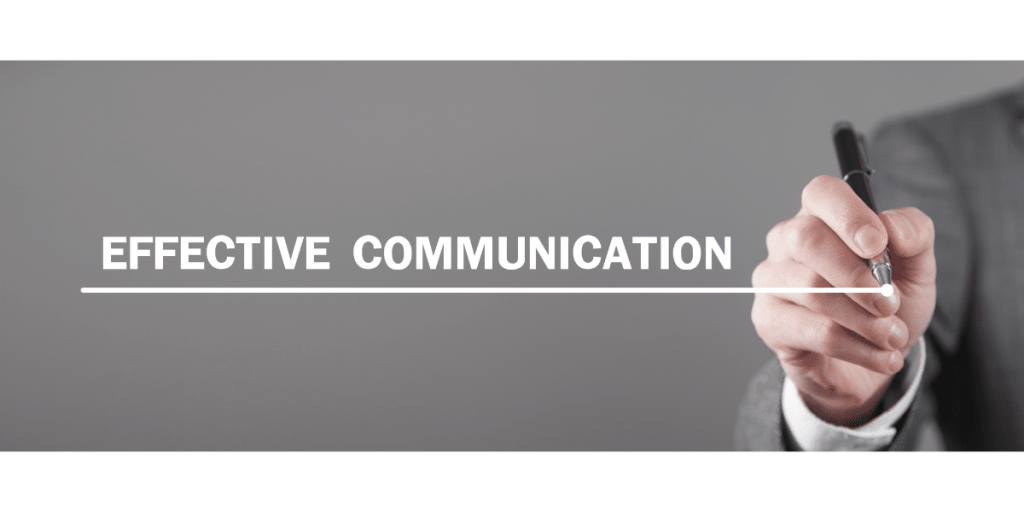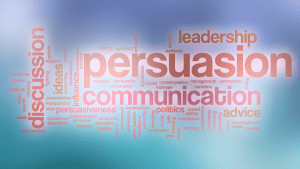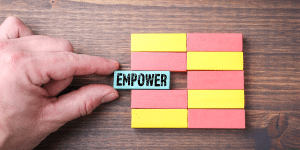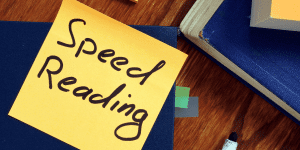Listen to Podcast
Effective communication is an essential life skill that we often take for granted. We communicate with others every day, but how often do we stop to consider the quality and effectiveness of our communication? In this comprehensive guide, we’ll explore the dos and don’ts of effective communication, discuss why communication is important, and provide tips for improving your communication skills in various contexts. So let’s dive in and learn how to master the art of communication.

Introduction to Effective Communication
Effective communication is the ability to convey information in a clear, concise, and timely manner that can be easily understood by the recipient. It involves not only speaking and writing, but also active listening, empathy, and understanding. Moreover, effective communication is not limited to verbal communication; nonverbal cues such as facial expressions, gestures, and body language play an essential role in conveying our thoughts and feelings.
When we communicate effectively, we build strong relationships, foster teamwork, and create a positive environment for ourselves and others. Whether in personal or professional settings, effective communication is the key to understanding and being understood, and ultimately, achieving our goals.
Why is Communication Important?
- Relationship-building: Communication is the foundation of any strong relationship, whether it’s with friends, family, or colleagues. When we communicate effectively, we can express our thoughts and feelings, understand the needs and wants of others, and work together to solve problems and achieve common goals.
- Decision-making: Effective communication is crucial in decision-making, as it helps us gather information, explore different perspectives, and consider the potential consequences of various actions. When we communicate effectively, we can make better-informed decisions that align with our values and priorities.
- Conflict resolution: Conflicts and misunderstandings are inevitable in any relationship, but effective communication can help us address and resolve conflicts in a constructive and timely manner. By actively listening, empathizing, and expressing ourselves clearly, we can work through disagreements and find solutions that satisfy all parties involved.
- Personal growth: Communication is the key to self-awareness and personal growth. Through effective communication, we can better understand our thoughts, feelings, and behaviours, as well as the impact they have on others. This self-awareness allows us to grow and develop as individuals, improving our relationships and overall well-being.
- Professional success: In the workplace, effective communication is essential for collaboration, problem-solving, and achieving success. Employers value strong communication skills, as they contribute to a productive and positive work environment. Additionally, effective communication can help you stand out in your career, as it demonstrates your ability to work well with others and navigate complex situations.
What are the 5 elements of effective communication?
- Sender: The sender is the person who initiates the communication process by sending a message to the receiver. The sender is responsible for ensuring the message is clear, concise, and appropriate for the intended audience.
- Receiver: The receiver is the person who receives the message from the sender. The receiver’s role is to understand the message and provide appropriate feedback or a response. Active listening and empathy are essential skills for the receiver to effectively understand and interpret the sender’s message.
- Message: The message is the information, ideas, or feelings that the sender wants to convey to the receiver. The message must be clear, concise, and easily understood by the receiver. Using appropriate language, tone, and nonverbal cues can help ensure the message is effectively communicated.
- Channel: The channel is the medium through which the message is transmitted, such as face-to-face conversation, email, phone call, or text message. Choosing the appropriate channel for your message is crucial, as different channels have different levels of formality, immediacy, and personal connection.
- Feedback: Feedback is the receiver’s response to the sender’s message. Feedback can be verbal or nonverbal and helps the sender gauge the effectiveness of their communication. Constructive feedback is essential for improving communication and building strong relationships.
Dos of Effective Communication
a. Active Listening
Active listening is the process of fully concentrating, understanding and responding to what the speaker is saying. It involves giving the speaker your undivided attention, asking clarifying questions, and providing feedback to show that you are engaged and understand their message. Active listening is crucial for effective communication, as it helps build trust, rapport, and understanding between the sender and receiver.
b. Clarity and Conciseness
To communicate effectively, ensure that your message is clear and concise. Avoid using unnecessary jargon, slang, or technical terms that may confuse or alienate your audience. Instead, use simple language that can be easily understood by everyone. Additionally, avoid rambling or going off on tangents; stick to the main point and provide relevant information to support your message.
c. Empathy and Understanding
Empathy is the ability to understand and share the feelings of others. When you communicate with empathy, you demonstrate that you genuinely care about the other person’s thoughts, feelings, and experiences. This helps build trust, rapport, and a positive atmosphere for effective communication. To practice empathy, try putting yourself in the other person’s shoes, listening without judgment, and validating their emotions.
d. Nonverbal Communication
Nonverbal communication includes facial expressions, gestures, body language, and tone of voice, which can convey emotions, attitudes, and intentions. Nonverbal cues can either support or contradict your verbal message, so it’s essential to be aware of them when communicating. To improve your nonverbal communication, maintain eye contact, use appropriate gestures, and modulate your tone of voice to convey your message effectively.
Don’ts of Effective Communication
a. Interrupting
Interrupting someone while they are speaking is not only disrespectful, but it also disrupts the flow of communication and can lead to misunderstandings. To avoid interrupting, practice active listening and give the speaker your full attention. If you have a question or comment, wait for the appropriate pause or break in the conversation to share your thoughts.
b. Using Jargon or Technical Terms
Using jargon, slang, or technical terms that are unfamiliar to your audience can create confusion and hinder effective communication. To ensure your message is clear and accessible, use simple language that everyone can understand. If you must use technical terms or jargon, be sure to explain them clearly and provide context to help your audience grasp your message.
c. Criticizing or Blaming
Criticizing or blaming others during communication can create a negative atmosphere and damage relationships. Instead of pointing fingers or assigning blame, focus on finding solutions and addressing the issue at hand. Practice empathy and understanding, and use “I” statements to express your feelings and concerns without accusing or attacking others.
d. Multitasking While Communicating
Multitasking while communicating can send the message that you are not fully engaged or interested in the conversation. To be an effective communicator, give your undivided attention to the person you are speaking with. Turn off or silence your phone, close your laptop, and eliminate any other distractions to ensure you are fully present and actively listening.
Communication Barriers to Avoid

a. Language Barriers
Language barriers can hinder effective communication, as they may lead to misunderstandings, confusion, and frustration. To overcome language barriers, use simple and clear language, avoid slang, jargon, or idiomatic expressions, and speak slowly and clearly. Additionally, using visual aids, gestures, and body language can help convey your message more effectively.
b. Cultural Barriers
Cultural differences can impact communication, as different cultures have different norms, values, and communication styles. To overcome cultural barriers, educate yourself about the culture of the person you are communicating with, and be open-minded and respectful of their customs and beliefs. Additionally, practice active listening and empathy to better understand their perspective and avoid making assumptions or stereotypes.
c. Psychological Barriers
Psychological barriers, such as emotions, stress, or anxiety, can negatively impact your ability to communicate effectively. To overcome psychological barriers, practice self-awareness and recognize how your emotions may be influencing your communication. Take time to calm yourself and collect your thoughts before engaging in communication, and practice deep breathing or mindfulness techniques to help you stay focused and present.
Improving Communication Skills
a. Practice Active Listening
To improve your communication skills, make a conscious effort to practice active listening. Give your full attention to the speaker, ask clarifying questions, and provide feedback to show that you are engaged and understand their message. Active listening can help you build rapport and trust, and it enables you to better understand and respond to what the speaker is saying.
b. Use Clear and Concise Language
Using clear and concise language is essential for effective communication. Ensure that your message is easily understood by avoiding jargon, slang, or technical terms that may confuse your audience. Stick to the main point and provide relevant information to support your message, and avoid rambling or going off on tangents.
c. Increase Self-Awareness
Improving your communication skills requires self-awareness and an understanding of how your emotions, thoughts, and behaviors affect your communication. Practice reflecting on your communication style, and identify any areas that may need improvement. By increasing your self-awareness, you can better understand the impact of your communication and make adjustments to improve its effectiveness.
d. Develop Empathy
Empathy is a crucial component of effective communication, as it allows you to understand and share the feelings of others. To develop empathy, practice putting yourself in the other person’s shoes, listening without judgment, and validating their emotions. Developing empathy can help you build stronger connections and foster a positive environment for effective communication.
Communication Skills in the Workplace
In the workplace, effective communication is essential for collaboration, problem-solving, and achieving success. Employers value strong communication skills, as they contribute to a productive and positive work environment. To improve your communication skills in the workplace:
- Practice active listening during meetings and conversations with colleagues, and provide constructive feedback when appropriate.
- Use clear and concise language when speaking or writing, and avoid using jargon or technical terms that may confuse your audience.
- Be aware of your nonverbal cues, such as facial expressions, gestures, and body language, and ensure they align with your verbal message.
- Develop empathy and understanding when dealing with colleagues, and be open to different perspectives and ideas.
Conclusion: Communication is the Key to Success
Effective communication is the key to success in both our personal and professional lives. By mastering the dos and don’ts of effective communication, we can build strong relationships, make better decisions, resolve conflicts, and achieve our goals. To improve your communication skills, practice active listening, use clear and concise language, increase your self-awareness, and develop empathy. Remember that communication is a lifelong journey, and there is always room for growth and improvement. Keep practising and refining your skills, and watch as your relationships, career, and overall well-being flourish.









